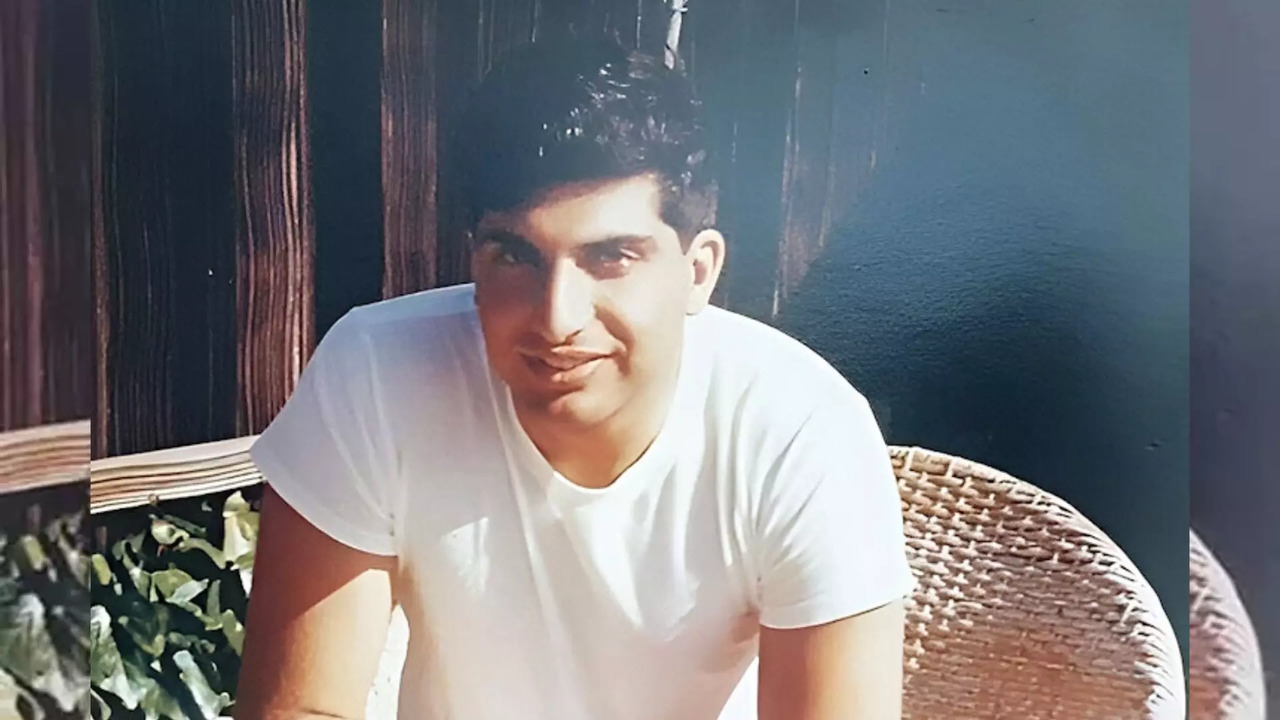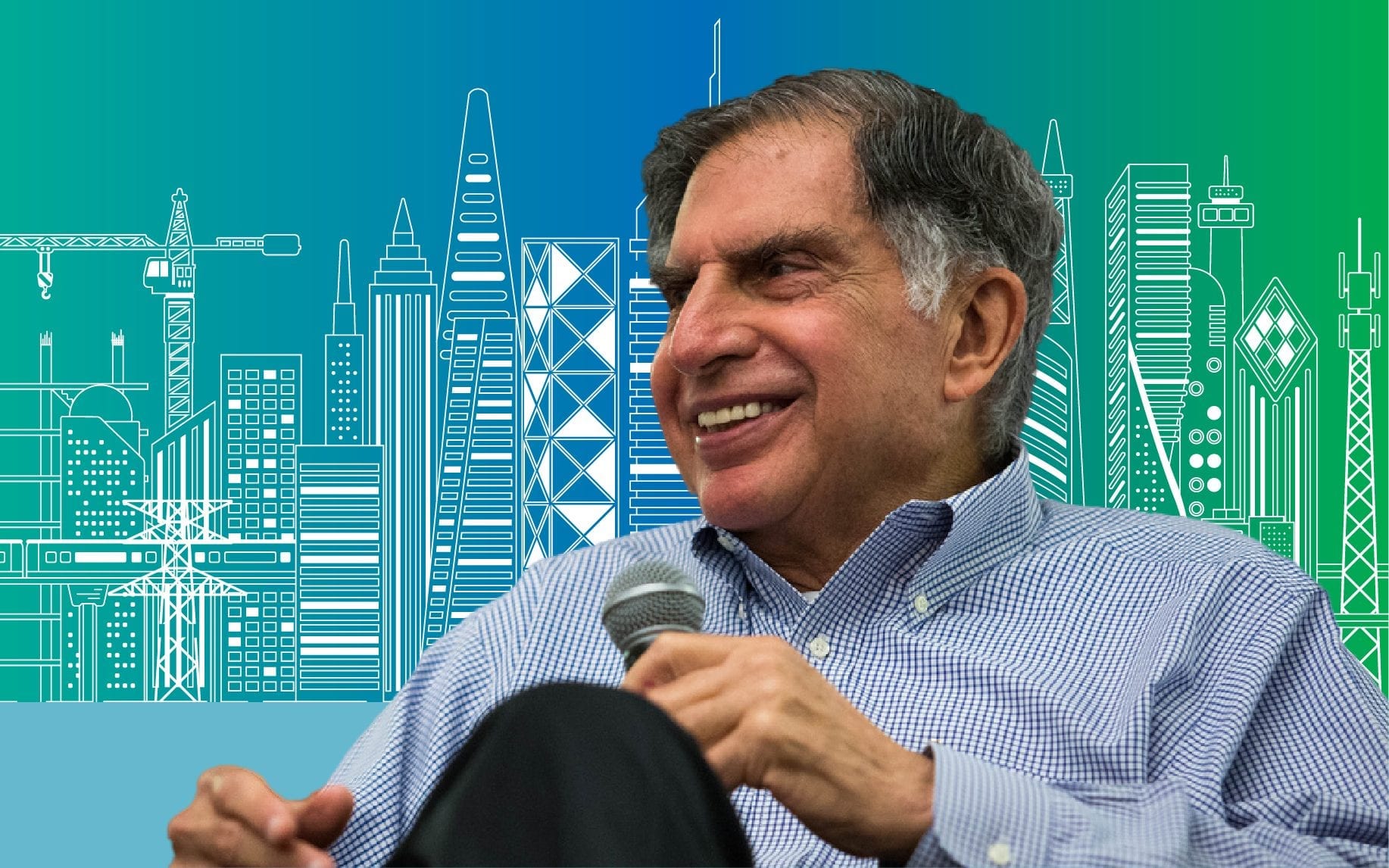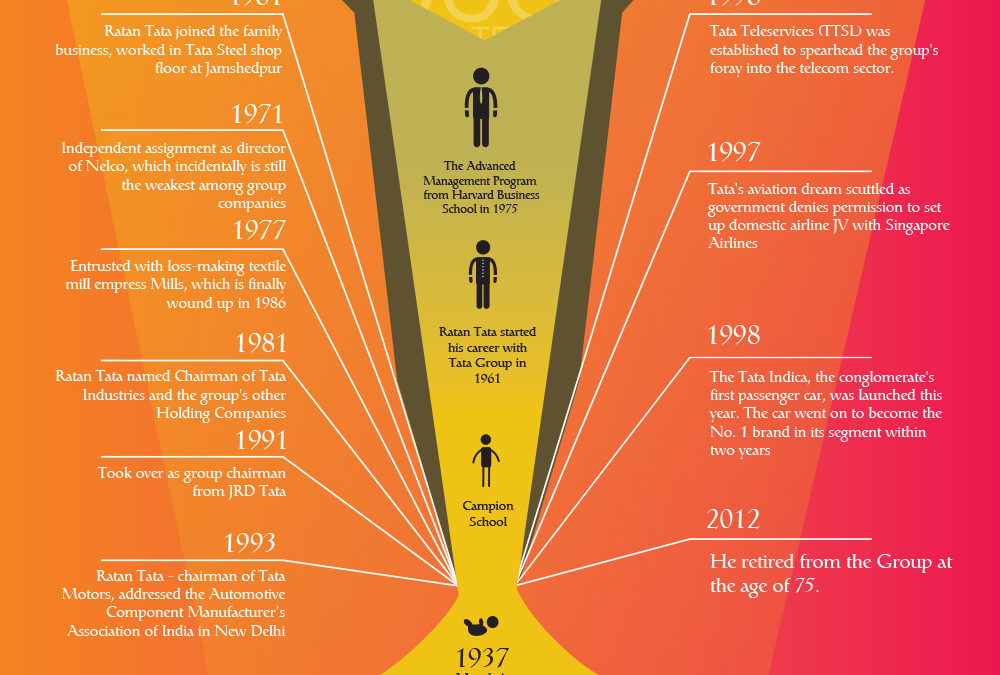


About Ratan Tata
Ratan Tata, born on December 28, 1937, in Mumbai, is a visionary industrialist, philanthropist, and the former chairman of the Tata Group. A graduate in architecture from Cornell University and an alumnus of Harvard Business School, he joined the Tata Group in 1961 and rose to become its chairman in 1991. Under his leadership, the Tata Group expanded globally, acquiring iconic brands like Jaguar Land Rover, Tetley Tea, and Corus Steel. Known for his innovation, he spearheaded projects like the Tata Nano, the world’s most affordable car. Beyond business, Ratan Tata is celebrated for his philanthropy through the Tata Trusts, supporting education, healthcare, and rural development in India. Honored with the Padma Bhushan and Padma Vibhushan, he is admired for his ethical leadership, simplicity, and unwavering commitment to societal progress. His legacy continues to inspire millions around the world.
Education
Ratan Tata's educational journey reflects his commitment to learning and excellence. He completed his schooling at Cathedral and John Connon School in Mumbai, a prestigious institution known for its academic rigor. Afterward, he pursued a degree in architecture from Cornell University in the United States, graduating in 1962. Recognizing the value of advanced management training, he later attended the Advanced Management Program at Harvard Business School in 1975, which prepared him for leadership roles within the Tata Group. His diverse educational background in architecture and business shaped his innovative thinking and ability to drive the Tata Group's global expansion while maintaining ethical and sustainable practices..
Career
Ratan Tata's career is a testament to visionary leadership and dedication. He began his journey with the Tata Group in 1961, working at Tata Steel in Jamshedpur, where he started on the shop floor alongside blue-collar workers. This experience instilled in him humility and a deep understanding of the workforce. In 1991, he became the Chairman of the Tata Group, succeeding J.R.D. Tata. Under his leadership, the Tata Group transformed into a global business powerhouse. He spearheaded key acquisitions, including Tea, Corus Steel, and Jaguar Land Rover, positioning the group on the international stage. Ratan Tata also introduced the world’s most affordable car, the Tata Nano, symbolizing his commitment to innovation and affordability. After retiring as Chairman in 2012, he continued to mentor startups and entrepreneurs through RNT Associates, fostering innovation in India. His career reflects a perfect blend of ethical leadership, strategic vision, and a commitment to societal progress, making him one of the most respected business icons globally.

Philanthropy
Ratan Tata is renowned for his exceptional philanthropic contributions, primarily driven through the Tata Trusts, which control the majority of the Tata Group’s shares. A significant portion of the group’s profits is allocated to social initiatives, making it one of the largest philanthropic organizations in India. His efforts focus on education, healthcare, rural development, and social welfare. In education, Ratan Tata has funded scholarships for Indian students to study at prestigious institutions like Cornell University, Harvard University, and >MIT. He also supports the establishment of research and innovation centers in Indian and global universities. In healthcare, he has contributed to the development of cancer treatment facilities, including the Tata Memorial Hospital, and has championed efforts to improve rural healthcare access. Ratan Tata’s rural development initiatives aim to enhance water availability, sanitation, and agricultural productivity, benefiting countless underprivileged communities. His commitment to ethical leadership extends to fostering entrepreneurship by mentoring startups, particularly in technology and social innovation. Ratan Tata’s philanthropy exemplifies his belief in using wealth and influence to uplift society and drive sustainable progress.
Awards and Recognition
Padma Bhushan (2000) - India’s third-highest civilian honor, awarded for his exceptional contribution to trade and industry. His visionary leadership not only strengthened Tata Group’s domestic presence but also laid the groundwork for its future global expansions, including key acquisitions that would follow. This honor acknowledged his role in shaping Indian industry, fostering economic growth, and setting high standards of corporate ethics and social responsibility.

Padma Vibhushan (2008) - India’s second-highest civilian honor, recognizing his leadership and philanthropic efforts.This award also highlighted his commitment to ethical business practices and corporate social responsibility. Through the Tata Trusts, he significantly contributed to initiatives in education, healthcare, and rural development, positively impacting millions of lives. The Padma Vibhushan acknowledged not only his business acumen but also his dedication to societal progress, making him a global icon of responsible leadership.

Honorary Fellowships - Honorary Fellowship of the Royal Academy of Engineering, UK, for his impact on global business and engineering.His visionary leadership not only strengthened Tata Group’s domestic presence but also laid the groundwork for its future global expansions, including key acquisitions that would follow. This honor acknowledged his role in shaping Indian industry, fostering economic growth, and setting high standards of corporate ethics and social responsibility.